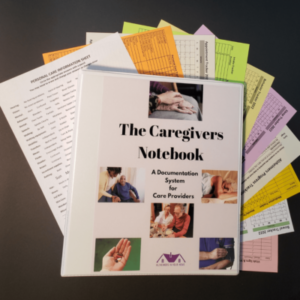Alzheimers Medication Tips

I have been a nurse over 25 years and given patients with Alzheimers medications well over a million times. Sometimes it is an easy task and other times it can be very difficult. There a times when they are simply not going to cooperate. Here I will share with you some of the tips I have used over the years to help you give your family member with Alzheimers medications.
Understanding Different Pill Types
Pills come in all shapes and sizes.
Tablets are the most difficult of the pills to swallow but usually the easiest to crush. They are also easy to cut if you need to only give a half of a pill.
Capsules are powder or jelly medication in a cylindrical outer shell made of
dissolving gelatin. The capsules are odorless and tasteless, making
them easy for patients to swallow. Sometimes the edges are not sealed and they can be opened and added to a liquid or food.
Caplets are smaller than tablets and usually easier to swallow
Soft gels are one-piece capsules made of gelatin. These are used for liquid or
oil-based medications. Compared to ordinary capsules, soft gels are easier swallow. Soft gels
cannot be neatly broken down into smaller doses or easily opened. These are often the pill that will be spit out by the Alzheimers patient.
Chewables are usually larger than tablets and lower in potency because of the flavorings added but for someone who you are having a hard time getting to swallow meds, this may be your best choice.
Extended-release or sustained-release means the pill is formulated so that the drug is released slowly over time.This has the advantage of taking pills less often. It also means that there may be fewer side-effects as the levels of the of drug in the body are more consistent in extended- release formulations.
Extended-release tablets, which can be composed of multiple layers for different drug release times, as can beads within capsules. Some of the more common prefixes or suffixes for sustained-release, controlled-release, or controlled-delivery products include: 12-hour, 24-hour, CC, CD, CR, ER, LA, Retard, SA, Slo-, SR, XL, XR, or XT
Enteric-coated tablets, which are formulated because certain drugs can be irritating to the stomach or are degraded by stomach acid. By enteric-coating tablets or capsule beads, the drug’s release can be delayed until it reaches the small intestine. Prefixes include EN- and EC
Crushing Alzheimers Medications
Some people have difficulty swallowing tablets or capsules; some simply don't like the taste. For these people crushing medications to be mixed with food or beverages is usually the best option.
But beware not all medications are suitable for crushing. Generally, medications that should not be crushed are the extended- release and the enteric coated pills.
Some medications also come in a liquid form. If you are having difficulty getting them to take a certain pill, you can always ask your pharmacist if there are other forms of the medication.
When you crush a person with Alzheimers medication, try to put it into a small amount of food so they can get it all in one bite. If it is put into a larger amount they may not take it all and you will have no idea how much of the medicine they actually got.
The best food choices to add medicine to are applesauce, pudding, and sherbert. Orange sherbert is my preferred food. I believe it hides the taste of the medicine the best.
Eye Drops
Many elderly patients have eye drops ordered. I learned many years ago, the best time to give people with Alzheimers medication in the form of eye drops is while they are laying in bed.
If the drops are ordered twice a day I will put them in at bedtime and again in the morning before they get up for the day. If the eye drops are ordered more often that that I would recommend trying to put the drops in while they are sitting up in a kitchen chair and lean their head back.
It is important to try to keep the tip of the bottle clean. Do not let it touch their eye. Bacteria can get into the bottle if you are not careful and could lead to an eye infection.
Bowel Medication
Often as people become more sedentary their bowels can slow down. Please keep track of how often their bowels move. There is the potential for a bowel obstruction if they do not keep their bowels moving.
Getting plenty of fiber and water in their diet will help this but often they may need some type of medication. If this is the case in your home, please talk to your doctor about what he would like you to use. There are many types of medications for the bowels and they work in different ways.You will need your doctor to determine which type your loved one needs.
Timing of Medications
Your family member with Alzheimers medications may need their medication times adjusted. If they are a morning person it usually works out to give their medications in the morning with breakfast. I have run into people who are not morning people and would not take their meds until lunch or evening. If you are having problems with giving meds, talk to your doctor. Many times they would rather adjust the time of day than have them miss the dose completely.
Also if they refuse their medications wait 10-15 minutes and try again.
Do you know what stage of Alzheimer's Disease your loved one is in?
Do you know what to watch for next?
Do you have sitters coming in and need to have a better system to help them provide the best care?
Does your loved one have behaviors that you should be tracking?
Do you have all of the information written down you need when you go to your doctor visits to help them understand what needs you may have?
Do you need help keeping track of appointments, medicines, vital signs, weights, meals, bowels, and behaviors?
Dementia - it's more than just memory loss. Are you prepared for what's next?
The ALZLOG App was created to help you recognize what stage your loved one is in and prepare for what is coming next for your loved one.
Come check out my YouTube channel for helpful tips and support on caring for loved ones with dementia. Let's navigate this journey together!


